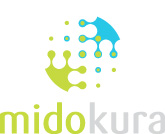 In July last year, Rackspace caused quite a splash in the cloud computing world when it decided to opensource the software behind its cloud storage and computing platforms to create Openstack, an Iaas-based cloud platform (more on that from the Scobleizer). Fast forward 9 months, and we are seeing over 60 companies worldwide (Dell, Cisco, Intel, NTT Data to name just a few) developing solutions based on Openstack.
In July last year, Rackspace caused quite a splash in the cloud computing world when it decided to opensource the software behind its cloud storage and computing platforms to create Openstack, an Iaas-based cloud platform (more on that from the Scobleizer). Fast forward 9 months, and we are seeing over 60 companies worldwide (Dell, Cisco, Intel, NTT Data to name just a few) developing solutions based on Openstack.
Tokyo-based Midokura is currently working to solve a hard problem that has barely been tackled before: flexibly virtualizing networks. Midokura’s key technology is called Midonet, a network virtualization platform that creates a control layer on top of the physical network. The company says it’s the only one to have “a true virtual network model” in a cloud stack.
According to Midokura, Midonet can be deployed on top of any existing IP network. Users are able to create virtual layer 2 switches, load balancers, routers, and firewalls with the click of a button (or by programmatically using an API call). Virtual machines can be moved around a physical infrastructure, with the virtual network following automatically. (In other words, the virtual network topology is completely independent from the physical layer.)
In addition, Midonet components are supposedly fault tolerant (Midokura CEO Tatsuya Kato promises there will be no single point of failure in the system), and scale out: the virtualization platform runs on commodity hardware, which means infrastructure costs could go down drastically (adding a Midonet-powered server to the stack is enough, the platform will take care of the rest).
Midonet can be used by integrating the platform into existing products, as a standalone solution, via a NaaS model, or through Midostack, Midokura’s own cloud (IaaS/EC2) distribution of Openstack (basically the delivery mechanism for Midonet and the company’s main product).
Midokura has started accepting a limited number of people into the beta testing phase (for pilot projects, for example) for Midostack.
The Tokyo-based company is currently expanding aggressively to further develop and market Midostack worldwide. An office in Europe is already in place, with Midokura actively hiring developers and business managers both there and for its office in San Francisco that will be opened this summer (possibly followed by another one in Singapore later this year).
Midokura, which tells me they seek a series A this year, just raised $1.3 million in a seed-funding round from a number of big-name investors, including Japan’s biggest telco NTT, the country’s leading independent IDC Bit-Isle and major software vendor 1st Holdings.